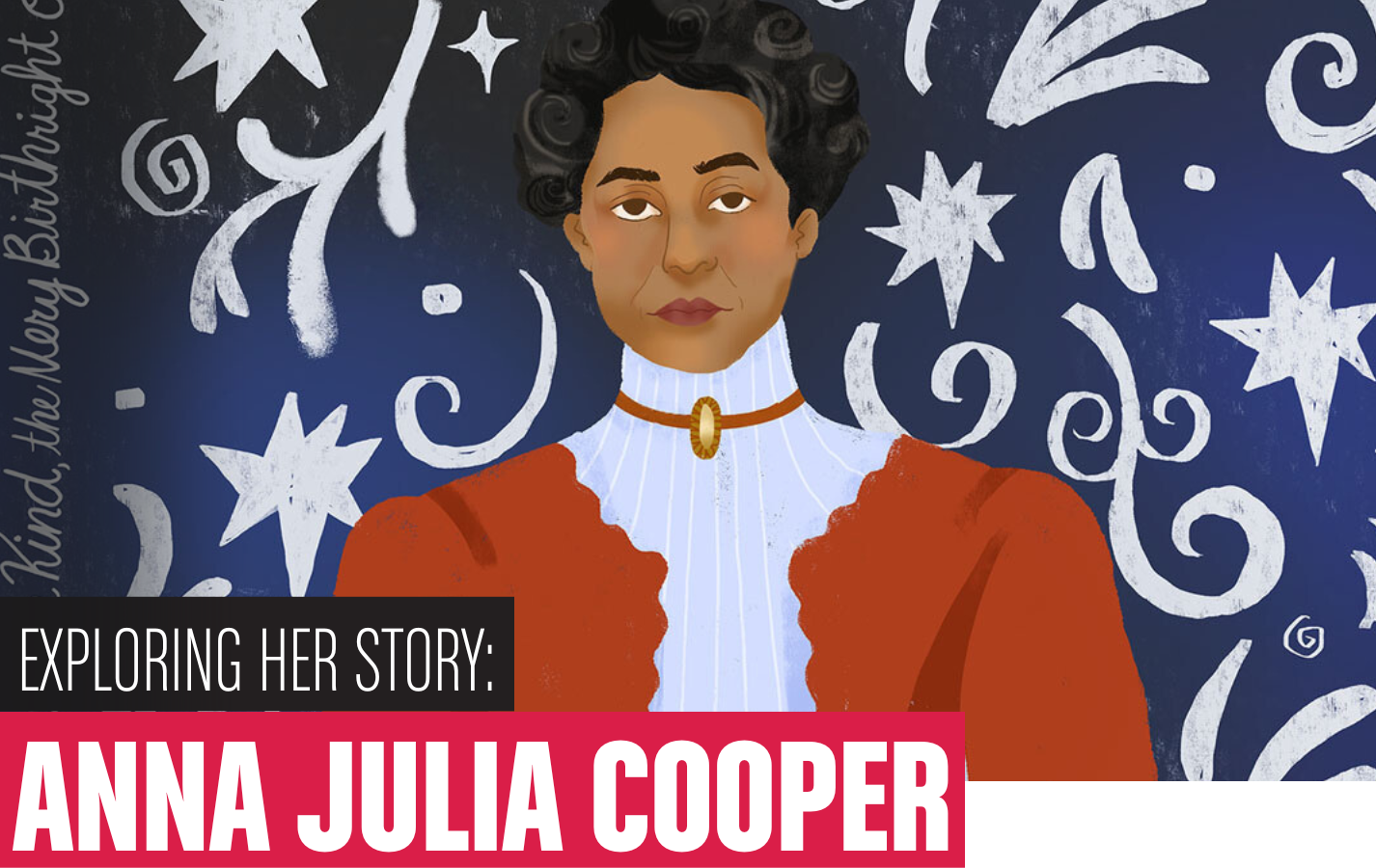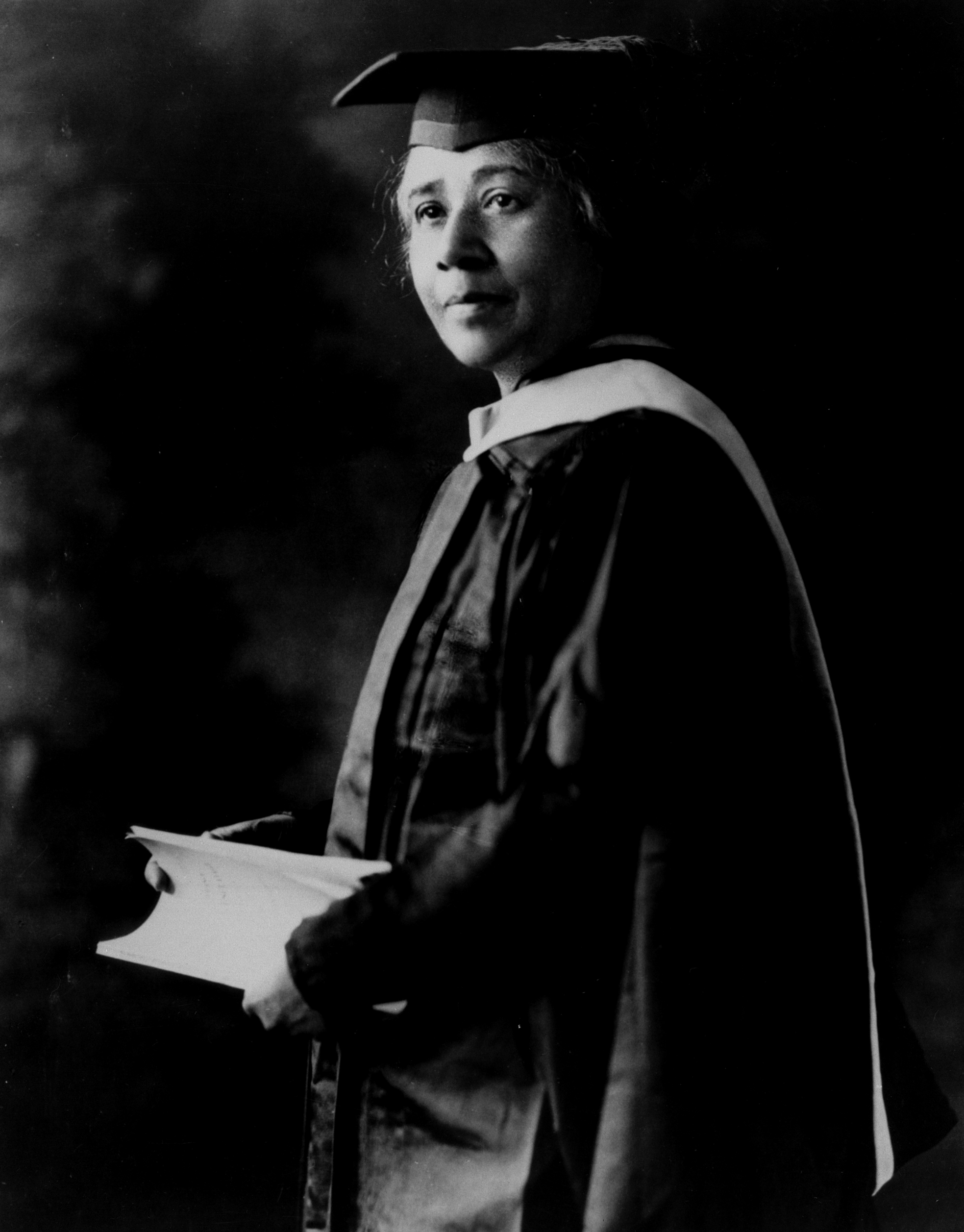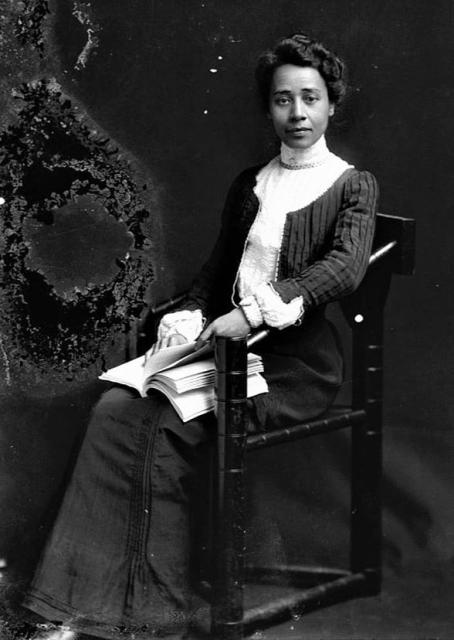
Anna Julia Cooper (1858 – 1964) was a visionary Black feminist leader, educator, intellectual, and activist. Born into slavery in 1858, she became the fourth African American woman to earn a doctoral degree when she received her PhD in history from the University of Paris-Sorbonne. A prolific educator, she pushed for gender and racial equality in higher education in Washington, D.C., from her early years as a high school principal to her later years teaching adult education.
A leader in 19th and 20th century Black women’s organizing, she published what would become a foundational text of Black feminist thought, A Voice from the South by a Black Woman of the South (1892), in which she identified how systems of oppression and domination converge around issues of race, class, and gender and argued for the central place of Black women in the battle for equal and civil rights.
Champion of Higher Education
“The cause of freedom is not the cause of a race or a sect, a party or a class—it is the cause of humankind, the very birthright of humanity.” — Anna Julia Cooper (2016 U.S. passport, pages 24 and 25)

Cooper began her teaching career at M Street (now Paul Laurence Dunbar) High School in Washington, D.C., in 1887, later becoming principal in 1902. Her inspirational presence in the classroom went beyond textbooks and lectures, instilling in her students the belief that life held possibilities other than vocational jobs, which were all too common for Black men and women in the aftermath of slavery. In fact, because of her successful impact, many of her students attended Ivy League universities!
Alongside her infamous writings, Cooper was ahead of her time in acknowledging children’s performances being impacted by their home lives and giving students with special needs extra time to complete tests and papers.
Her commitment to creating a nurturing and accommodating learning environment exemplified her dedication to advancing both the academic and personal growth of her students.
Alongside her infamous writings, Cooper was ahead of her time in acknowledging children’s performances being impacted by their home lives and giving students with special needs extra time to complete tests and papers. Her commitment to creating a nurturing and accommodating learning environment exemplified her dedication to advancing both the academic and personal growth of her students.
After receiving her doctorate in Paris, she returned to Washington, D.C., as president of Frelinghuysen University. There, she taught at a group of community schools that served working Black adults.
She never once stopped using education as a powerful vehicle for social transformation in the face of oppression of Black Americans. Whether this was through tirelessly working to uplift her community, challenging systemic inequalities, or promoting equality through her educational initiatives and advocacy, Cooper remained a force with which to be reckoned with.
Courage and Conviction in Black Feminist Thought
“Only the BLACK WOMAN can say ‘when and where I enter, in the quiet, undisputed dignity of my womanhood, without violence and without suing or special patronage, then and there the whole Negro race enters with me.’” — A Voice from the South by a Black Woman of the South by Anna Julia Cooper

In many of Cooper’s works, including A Voice from the South by a Black Woman of the South, a recurring theme of being ahead of her time in what we know today as intersectional feminism is prevalent. She consistently asserted that Black women have unique experiences that are best expressed through their own voices and should not be defined solely through the lens of a man. She also argued that the struggle for women’s rights could not be separated from the struggle for civil rights.
As an early advocate for women’s suffrage, her valiant efforts regenerated womanhood and what it means for Black women to feel and be liberated. A true mother of her time!
Her work remains influential in discussions of feminism and social justice, and widely in Black intellectual history. Anika Prather, Professor of English at Howard University, shares with the Bill of Rights Institute,
“She was very truthful about the Black experience, but all of her arguments and essays were heading towards a path of racial healing and unity. She wanted to bring American citizens together, and she was also very proud of being an American.”
The Cooper Legacy
The pursuit of a more just and equitable society is an ongoing journey, one in which the lessons and insights of Anna Julia Cooper remain indispensable. And although her reach isn’t widely known – likely due to the overlapping oppressions she fought affecting the canonization of her work – we would be remiss if we didn’t highlight just how far out of reach Cooper has in our country. Check out these quick five facts about Anna Julia Cooper that you might not have known!
- In 2009, the United States Postal Service released a first-class commemorative stamp in Cooper’s honor.
- Wake Forest University in Cooper’s home state of North Carolina hosts the Anna Julia Cooper Center on Gender, Race, and Politics in the South.
- Cooper’s former D.C. home at 201 T Street, N.W. is a contributing property to the LeDroit Park Historic District in Washington, DC.
- Spelman College’s Professor of Women’s Studies position is named after Cooper.
- The Anna Julia Cooper School in Richmond, VA, honors her legacy by providing students a faith-based program and full-tuition scholarships.
Kia Corthron’s Tempestuous Elements finds Cooper’s tradition of encouraging students to work hard toward their dreams being threatened by political powers insisting all Black education should be in the trades, not in academics. Exploring a little-known piece of D.C. history, this is a show you do not want to miss!
Get your tickets for Tempestuous Elements, running February 16 – March 17, 2024, today!




